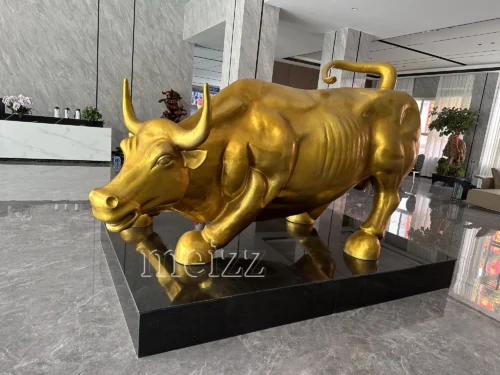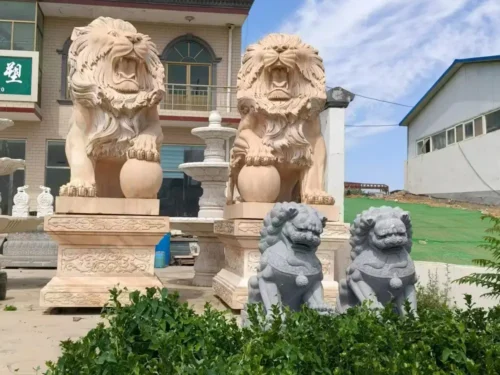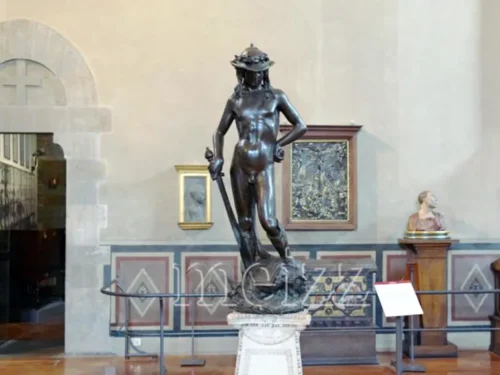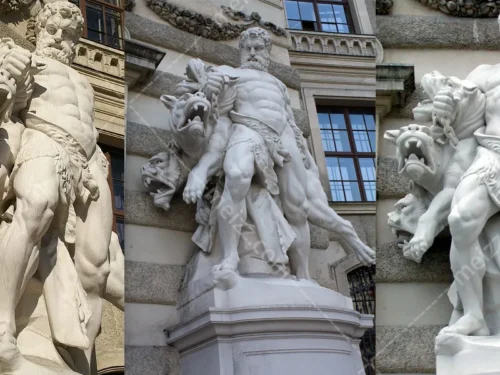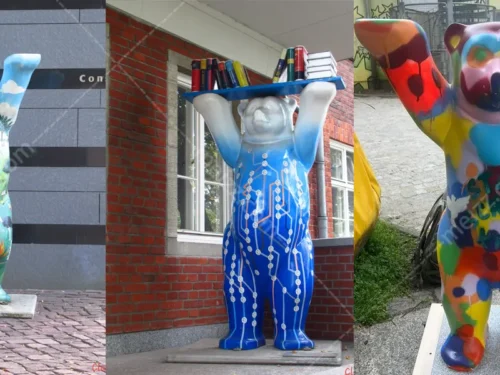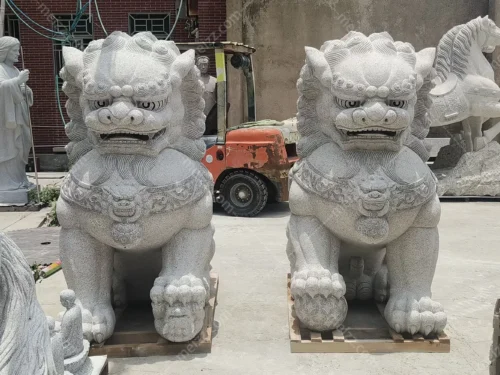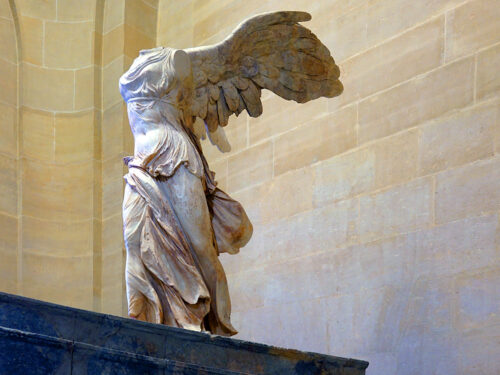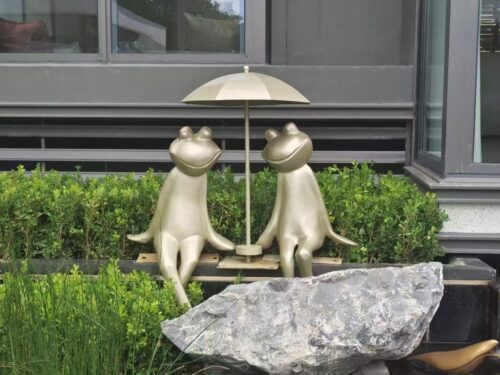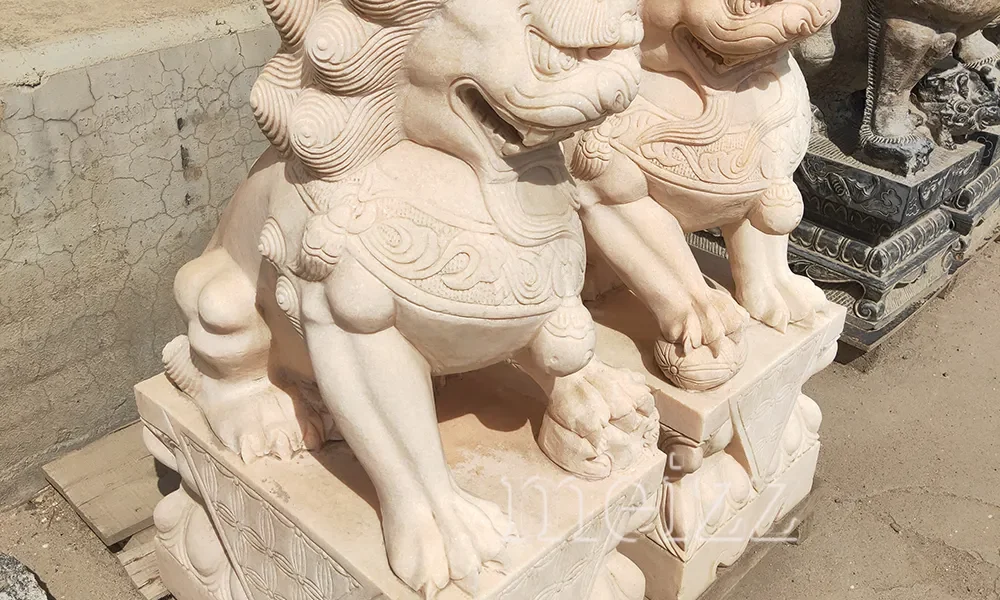

In traditional Chinese culture, Chinese foo dog statue is not just a decoration, but also a guard with rich symbolic meaning. They can be sighted at ancient palaces and modern courtyards, majestic temples and commercial buildings… Chinese foo dog statue are ubiquitous. Glossy finishes, their reflective surface reflecting auspiciousness, standing guard outside the house, protecting its peace, prosperity, and status, with a rich posture of strength. So, what does the stone lion represent? How should they be arranged? Do they need to appear in pairs? These seemingly simple questions contain profound cultural connotations and unique feng shui wisdom behind them.
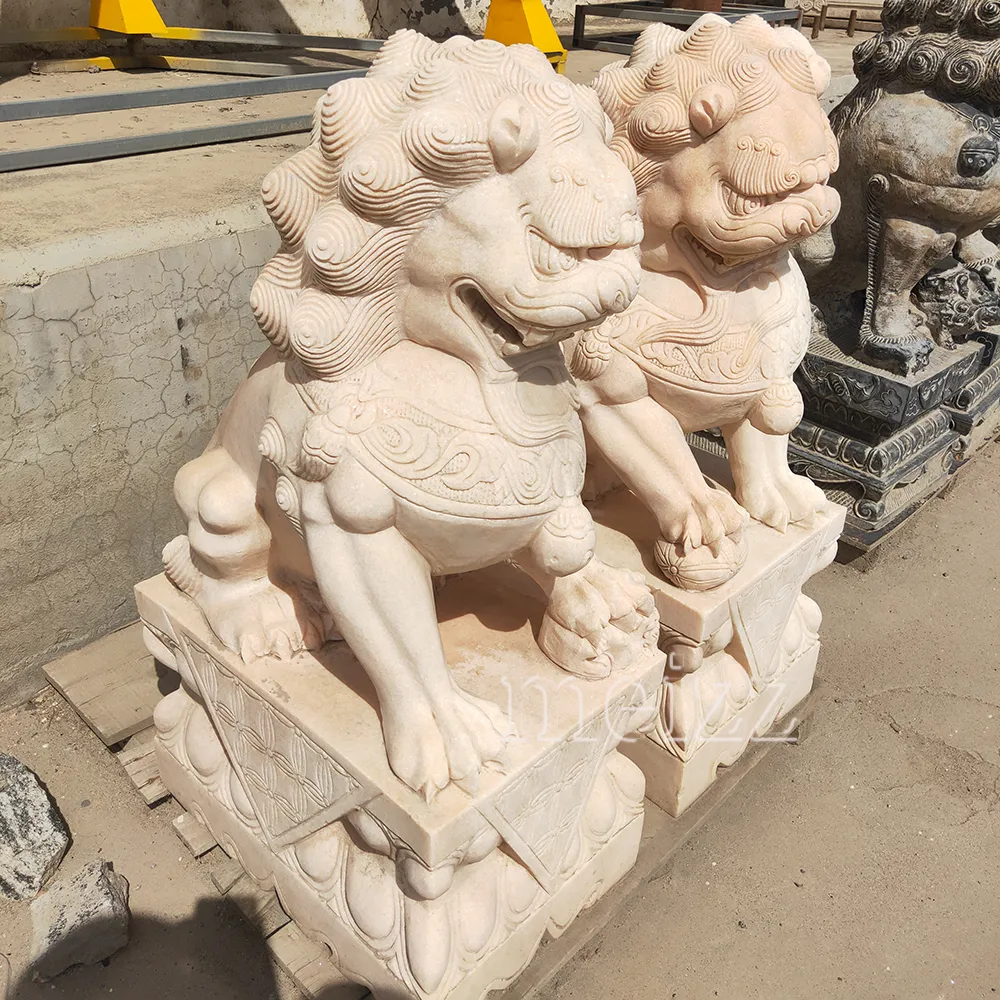
What does the Chinese Foo Dog statue represent?
The Chinese stone lion (Foo Dog) symbolizes protection, majesty, and auspiciousness, and is an important symbol in traditional culture for exorcising evil and avoiding disasters. As a feng shui ornament, stone lions are believed to protect homes and buildings from negative energy intrusion, while showcasing power and nobility. The male lion usually represents strength and authority, and stepping on the ball with its front paws symbolizes controlling the world; The female lion symbolizes motherhood and protection, with her front paws nurturing her cubs, symbolizing the prosperity and continuation of the family. The paired appearance of stone lions expresses the concept of harmony and balance between yin and yang, and is widely used in palaces, temples, mansions, and commercial places, becoming an important symbol for protecting wealth and family safety.
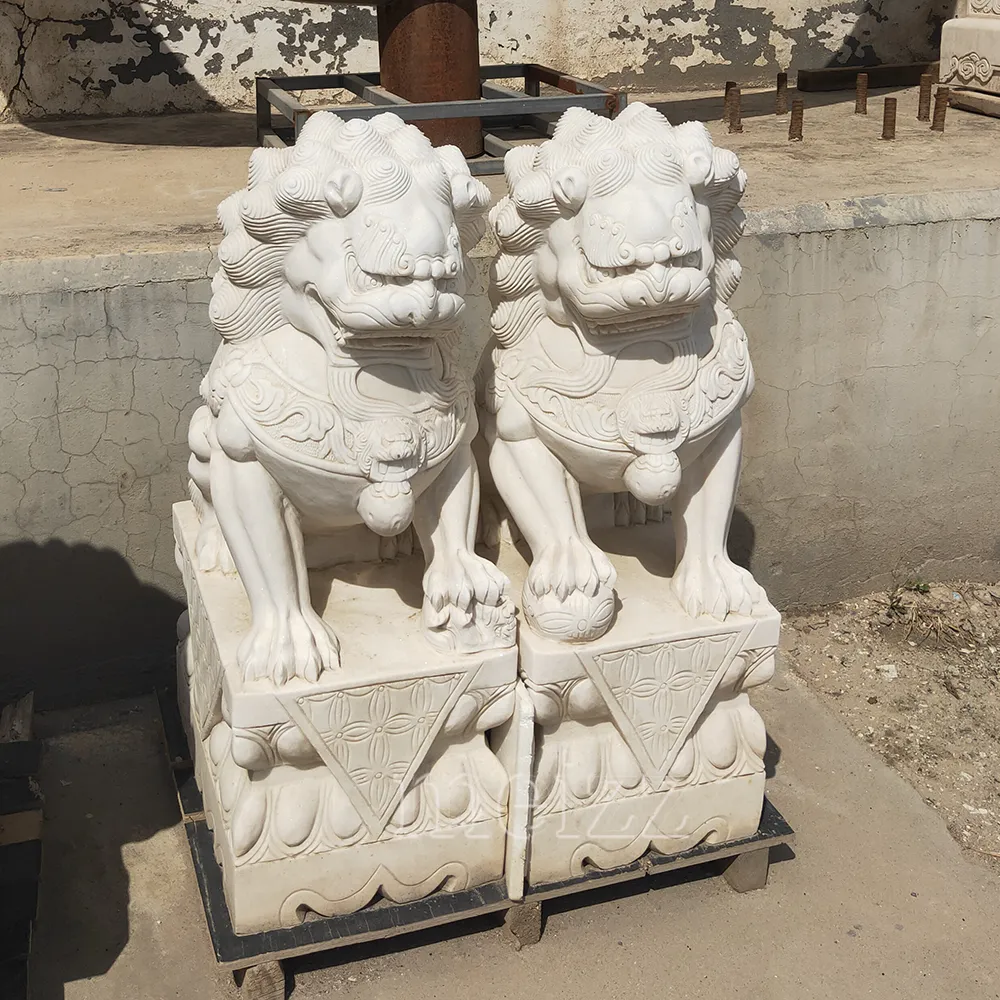
Where do you put the Chinese foo dog statue?
The placement of Chinese foo dog statue is very particular, usually placed on both sides of the gate to protect the safety of homes or buildings, ward off evil and disasters, and absorb auspicious energy. According to traditional feng shui, stone lions need to be placed in pairs. The male lion should be placed on the left side (when viewed from indoors), symbolizing strength and authority, while the female lion should be placed on the right side, symbolizing protection and prosperity.
The stone lion needs to face the entrance or main road to deter external evil energy and ensure the flow of positive energy. In addition, the base should be stable and elegant, avoiding arbitrary placement, otherwise it may affect its protective function. Whether in residential or commercial places, the placement of stone lions is not just decoration, but also a beautiful expectation for peace and prosperity.
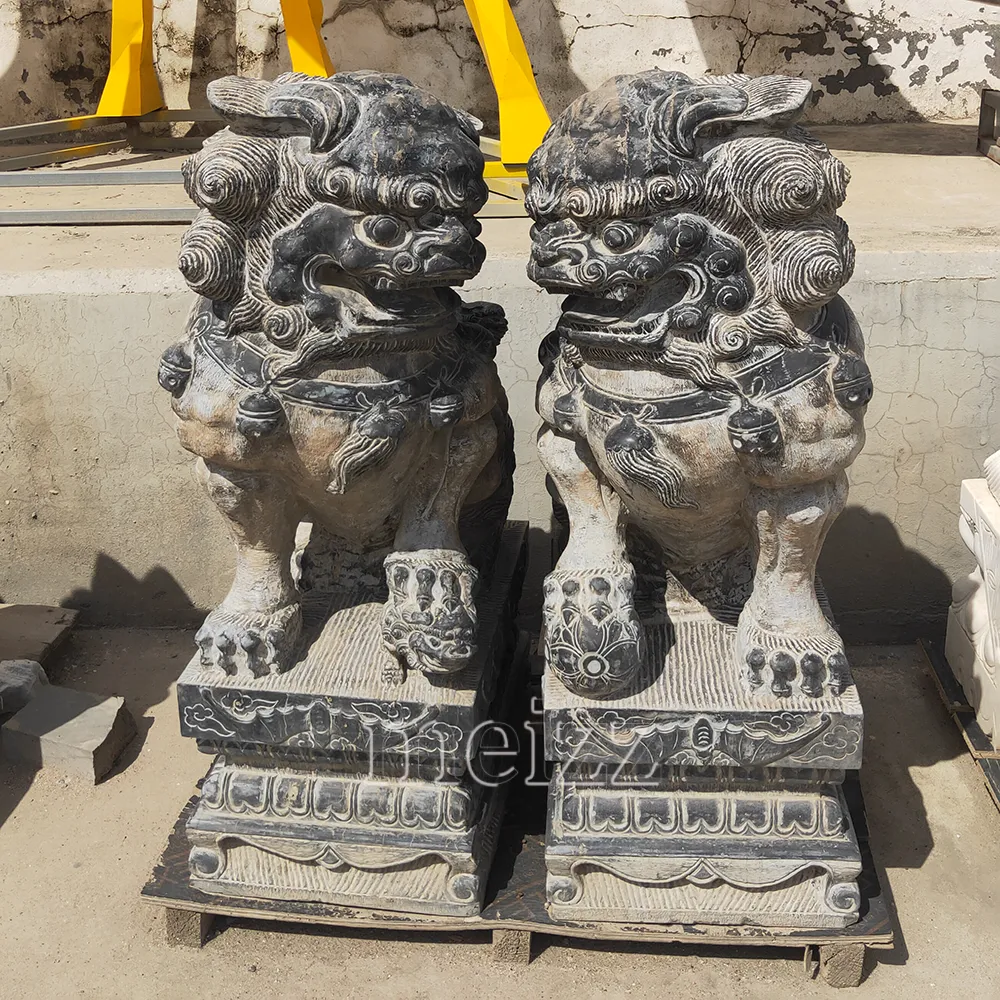
Is it okay to have one foo dog?
Strictly speaking, chinese foo dog statue should be placed in pairs to maximize their effectiveness. If there is only one stone lion, it may symbolize imbalance, making it difficult to achieve the effect of exorcising evil and protecting the mansion. However, if space constraints or design style require it, it is also possible to place only one stone lion, but special attention should be paid to selecting a male or female lion and placing it in a suitable position as much as possible. At the same time, other feng shui ornaments should be paired to balance the aura.
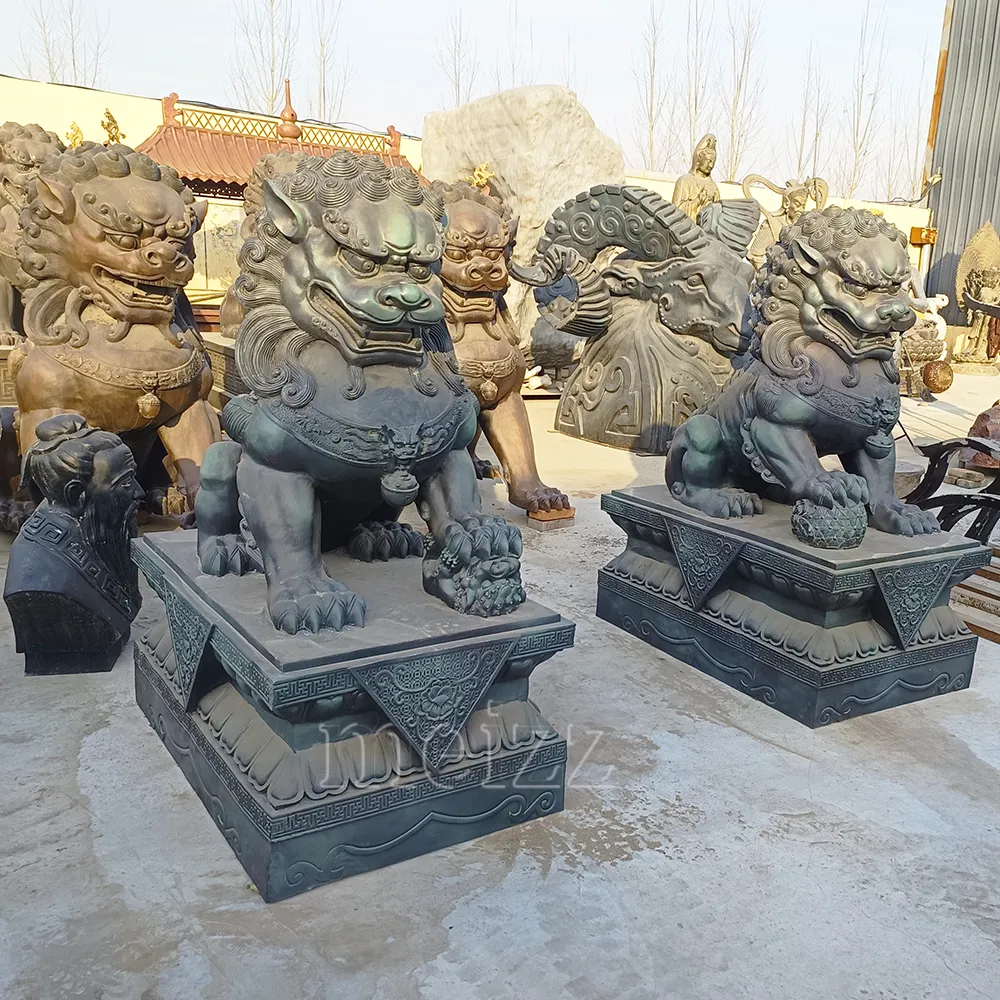
What is the myth of the foo dog?
In the West, the stone lion is known as “Foo Dog”, a name derived from a misunderstanding of the transliteration of “Buddha”. In fact, it is not a dog, but an incarnation of a lion. In some mythological stories, stone lions are endowed with more spirituality: they can perceive the presence of evil energy and expel it from the door through roaring or majestic postures. It is interesting that this symbolic meaning has also made the stone lion a bridge for cultural exchange between the East and the West. Many Western luxury homes also have stone lion sculptures placed in front of their doors to seek peace and good luck.
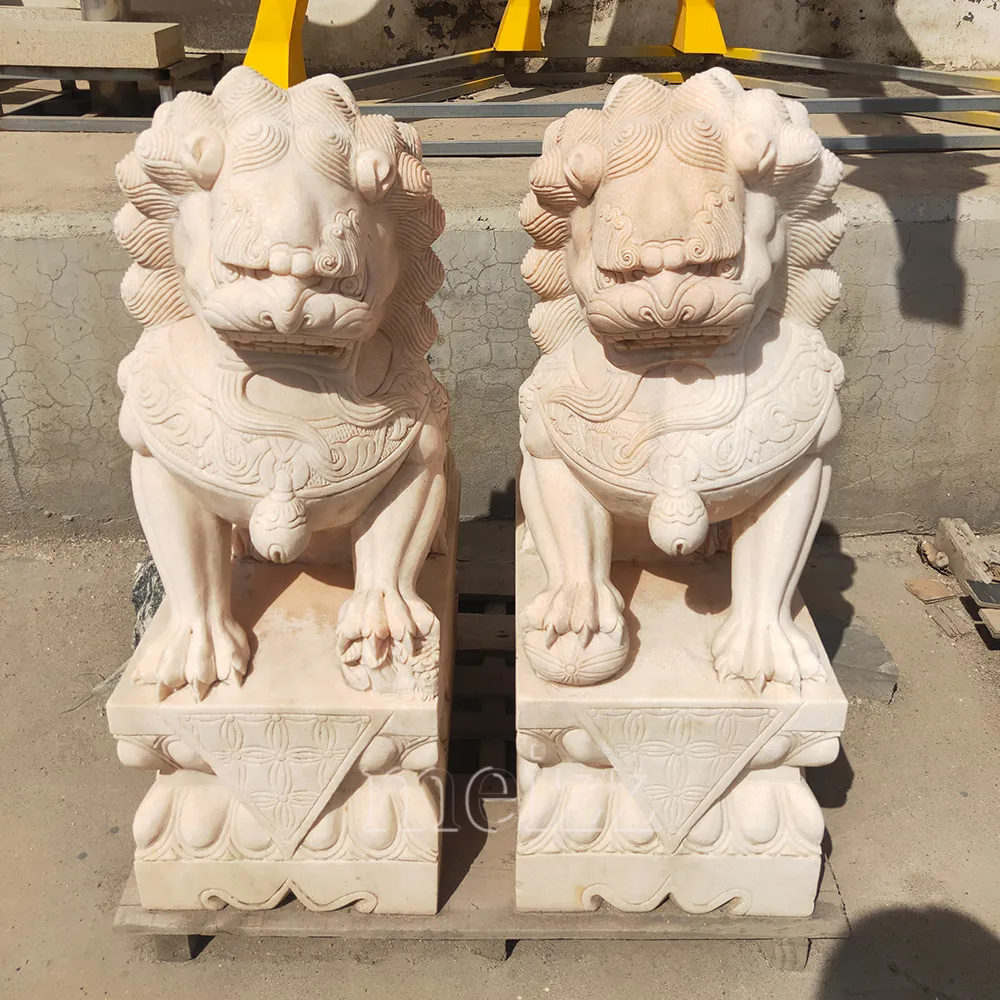
Summary: Stone Lion, Guardian of Culture and Art
As an important symbol of traditional culture, Chinese stone lions have continuously continued and developed their carving techniques and cultural connotations over thousands of years of history. It is not only a work of art, but also a spiritual sustenance for guarding the homeland and conveying good luck. Whether placed at home or in commercial places, stone lions bring peace and good luck to people with their majestic posture, balanced layout, and profound symbolism. If you are interested in placing Chinese stone lions, you may choose a suitable location based on feng shui principles, while also understanding the culture and legends behind them, so that this “feng shui guardian” can add auspiciousness and charm to your home.

